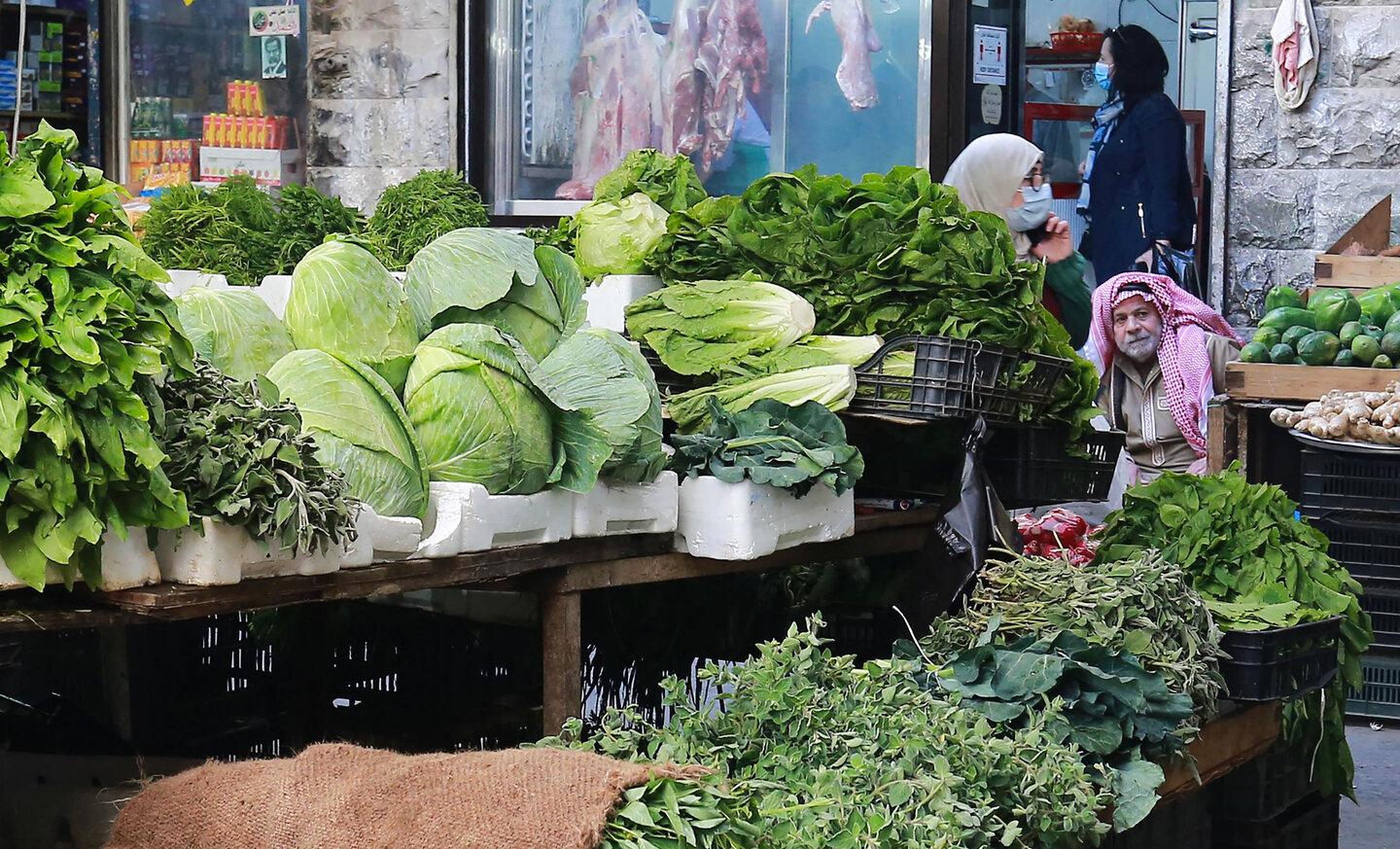Climate change, youth unemployment and refugees from Syria pose major challenges for Jordan. Helvetas supports the population — both local people and refugees — to generate a secure income in climate-adapted agriculture.
-
Project Name20D4C 20 Dunums for Change
-
Project Phase2023 to 2026
-
FundingAgence Française de Développement
-
Thematic focusClimate Smart Agriculture
Economic Empowerment
Skills, Jobs and Income
Voice, Inclusion & Cohesion
Ensuring that small-scale farmers have enough to live on
Jordan has a thriving tourism sector and a strong currency, yet the country faces a few major challenges. Climate change is drying out fields, and water to irrigate fields is scarce. Around 40 percent of all young people are unemployed, but few see any prospects in agriculture. In addition, around 675,000 Syrian refugees are currently registered in Jordan (as of 2022). The Coronavirus crisis also increased hunger in the country, leading people to work in precarious jobs.
The project’s goal is for small-scale farmers — Jordanians as well as Syrian refugees — to be able to sustainably generate enough income to meet their needs. For the latter in particular, agriculture is one of the few ways they can work legally, for example as seasonal workers or day laborers.
Climate-adapted agriculture and market access
To improve the agricultural sector in Jordan, Helvetas works with several organizations that address different aspects of the project, including legal issues and concerns about the children of agricultural workers. Helvetas' role in this intervention is to promote climate-adapted agriculture and to enable farmers to access the market.

Winning over young people with innovations
Thanks to training, smallholder farmers can increase their harvests and diversify and adapt their livestock and vegetable supply — important measures to counter the effects of climate change. These new farming methods should also attract young people to agriculture — and they do.
Helvetas also ensures that the products actually find buyers. To do this, it brings farmers together with end consumers and encourages farmers to form groups for bulk purchases.
The project, which is mandated by the Agence Française de Développement, is currently being implemented in two regions of the country, Irbit and Mafraq, in northern Jordan on the border with Syria. Around 800 people are expected to benefit directly, with Helvetas targeting mainly women.


